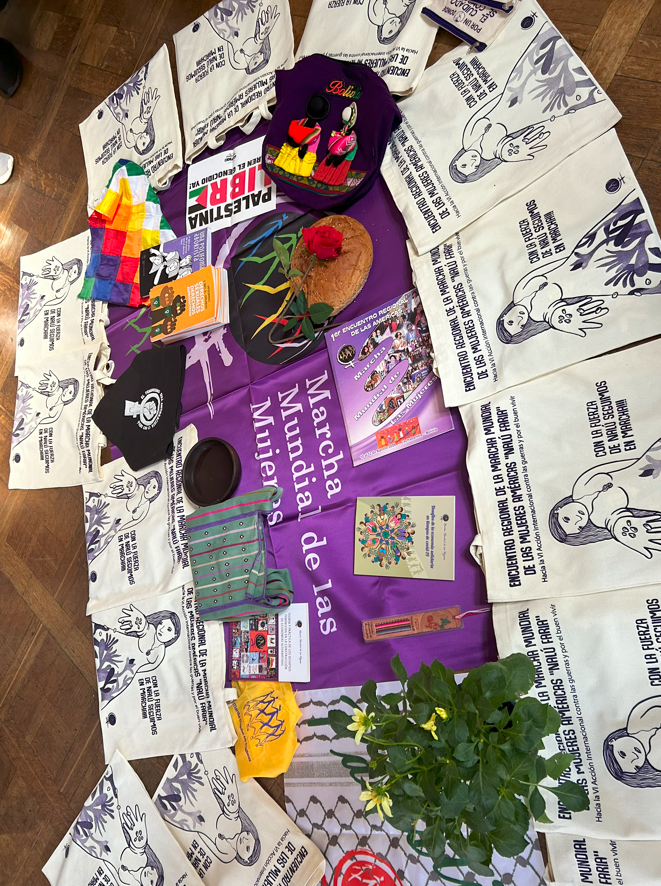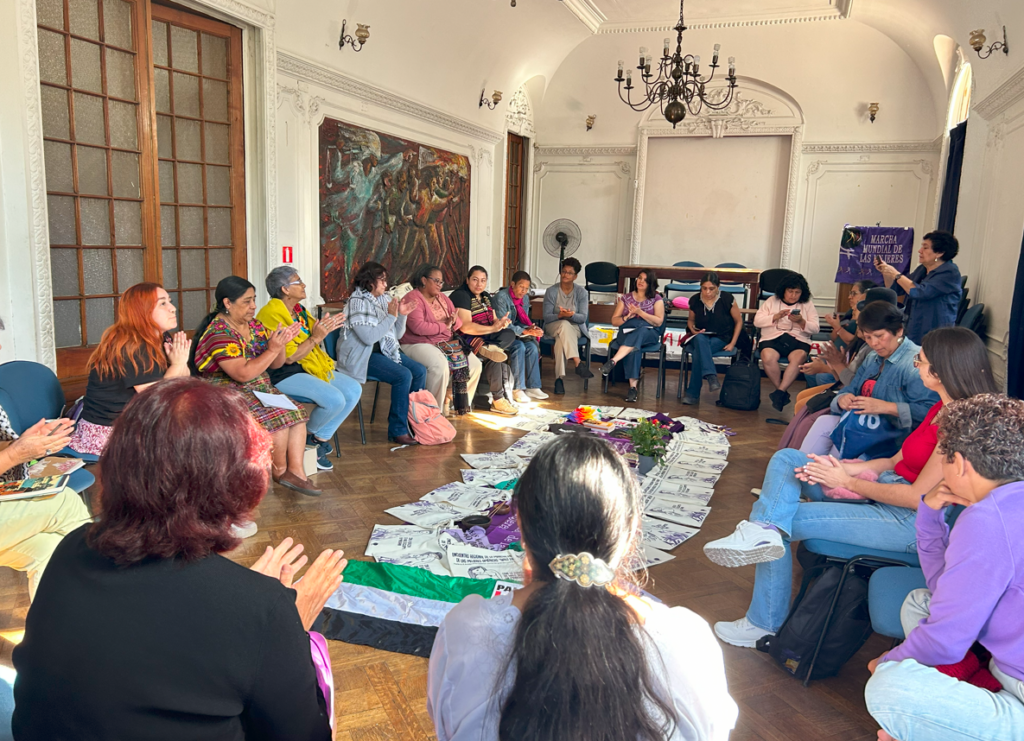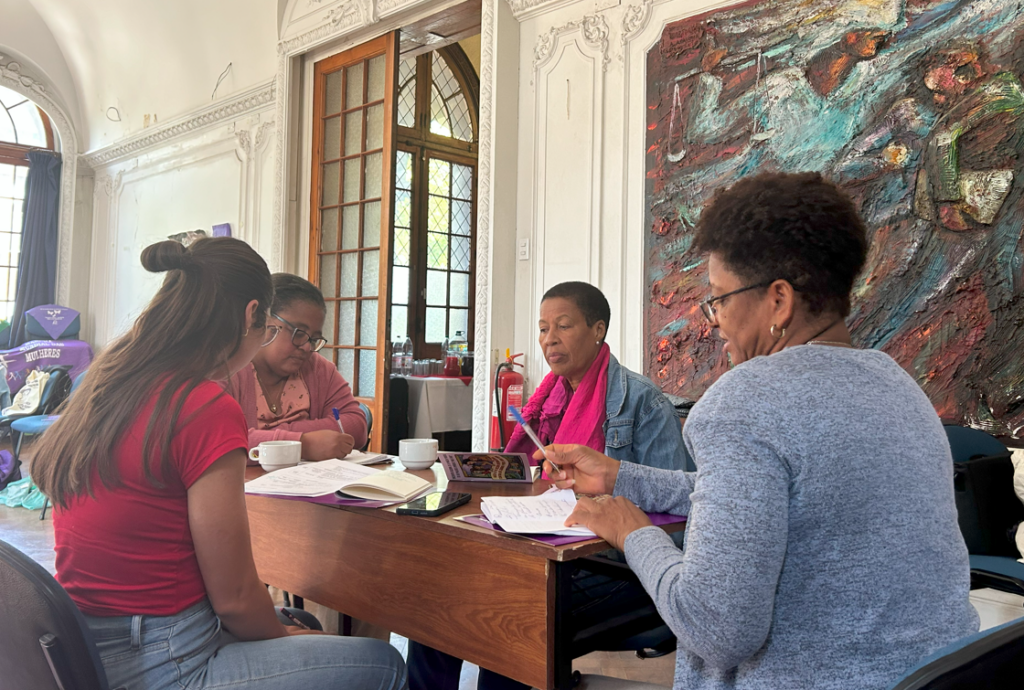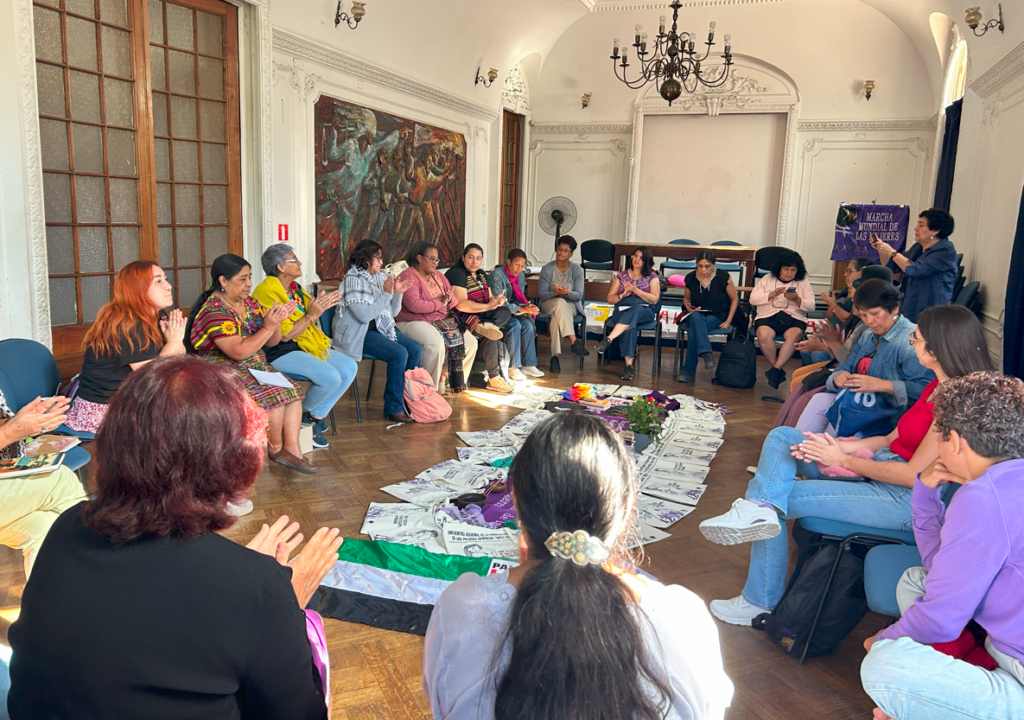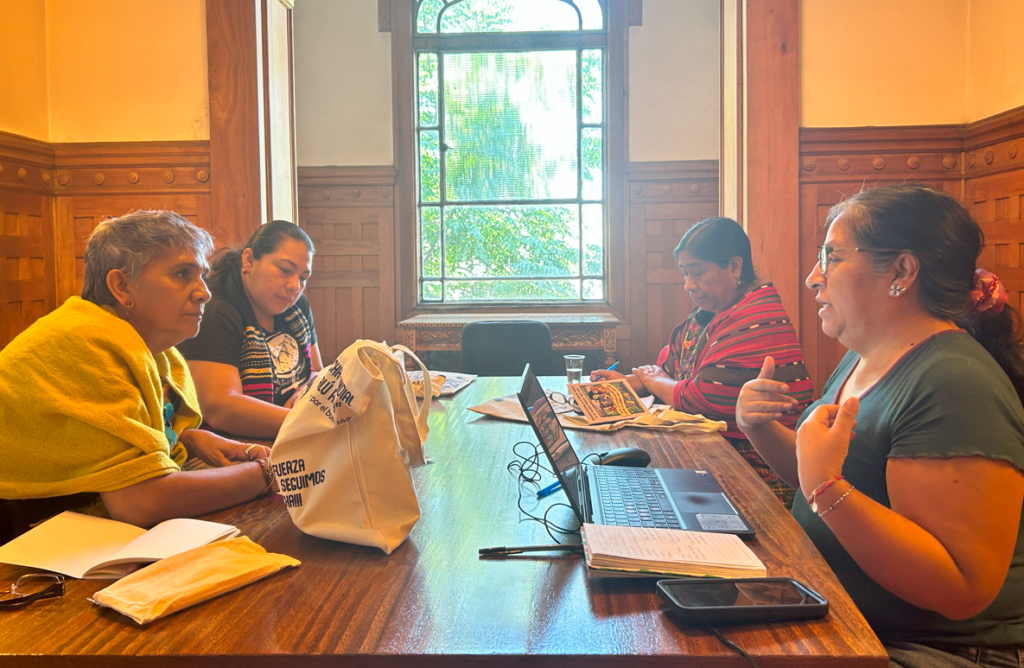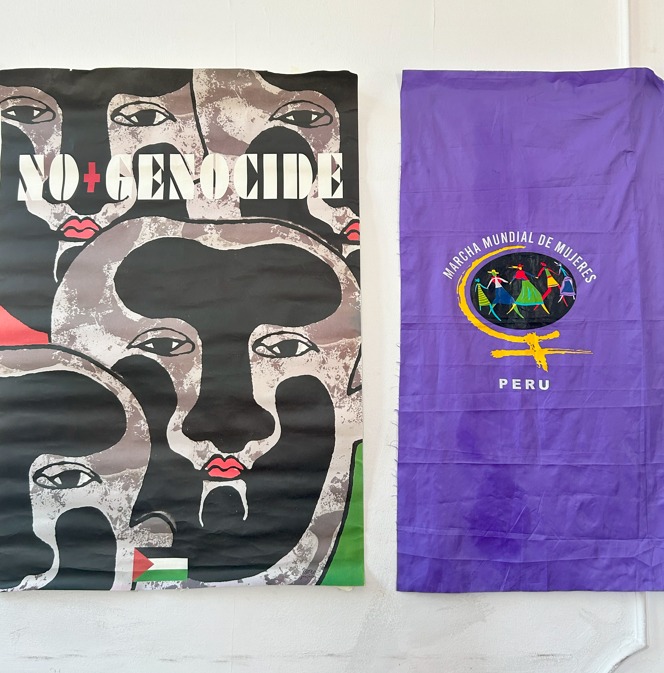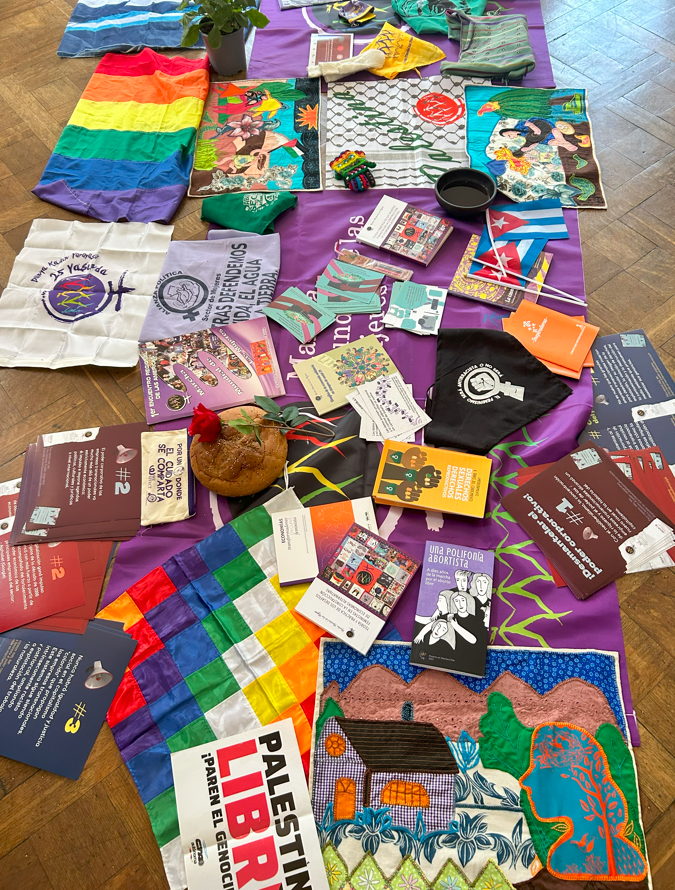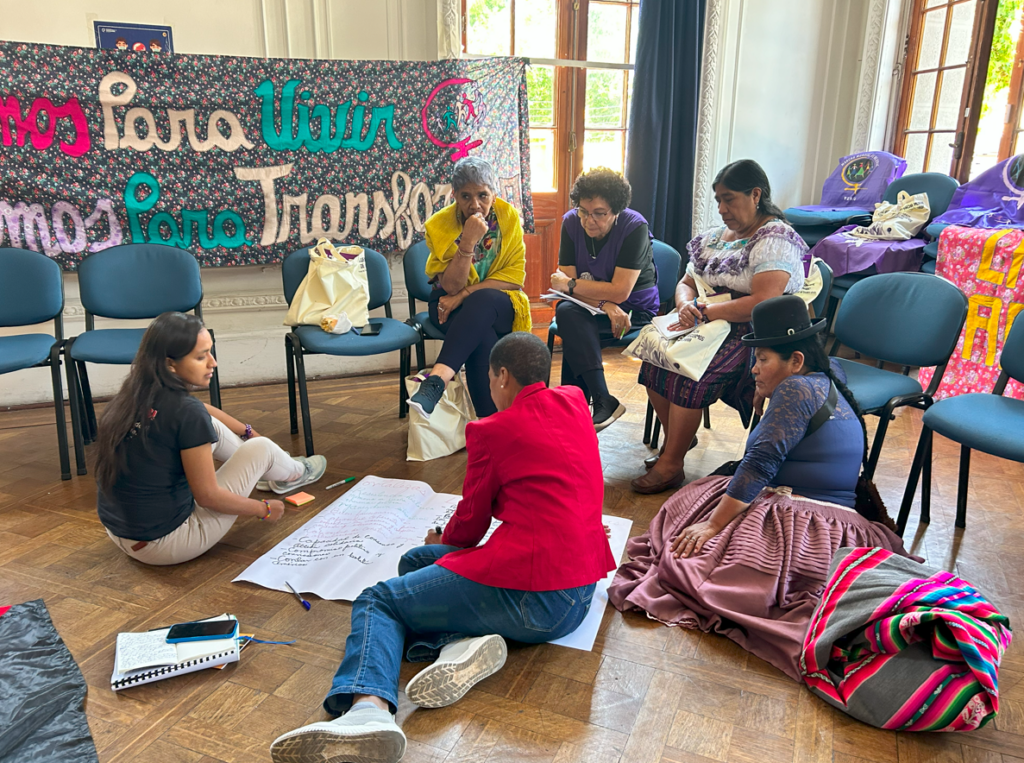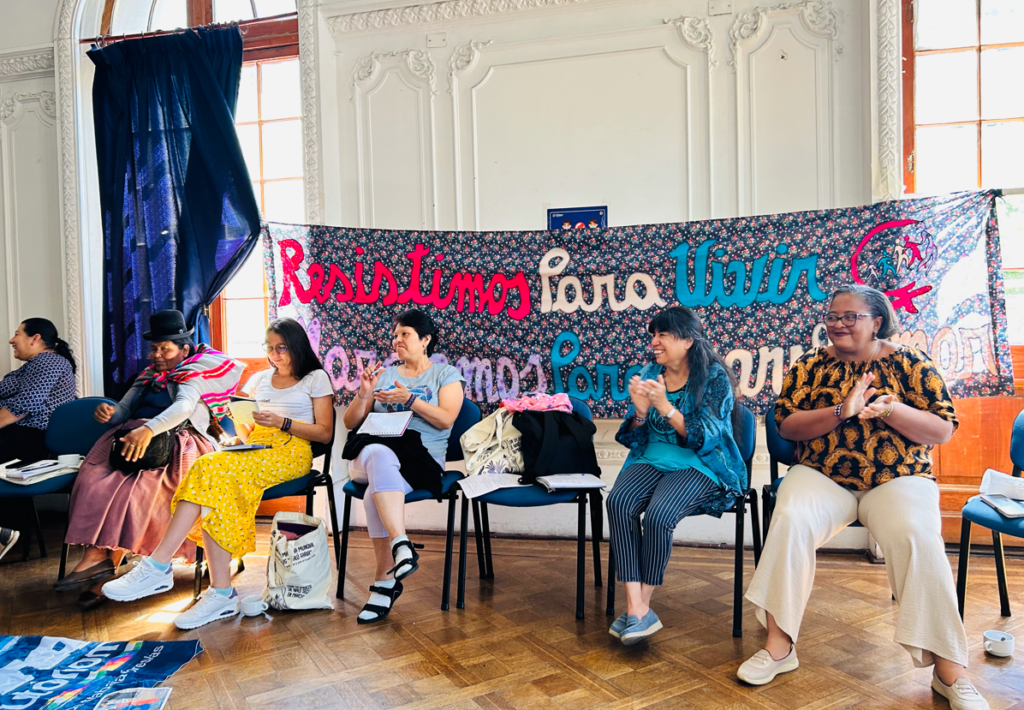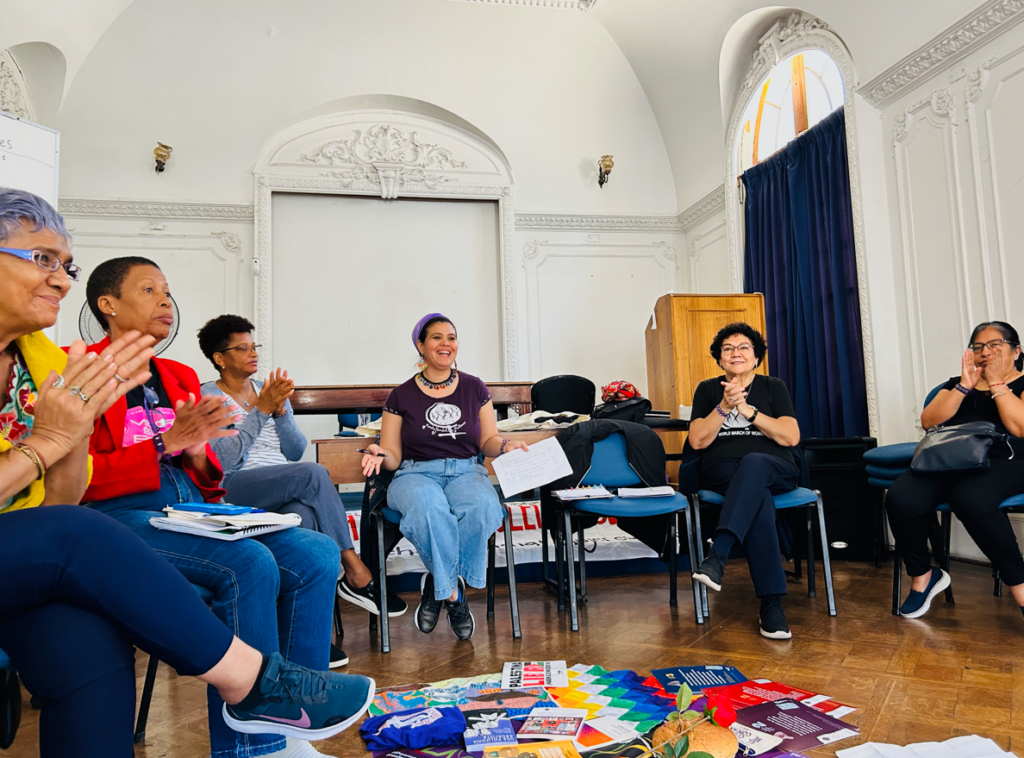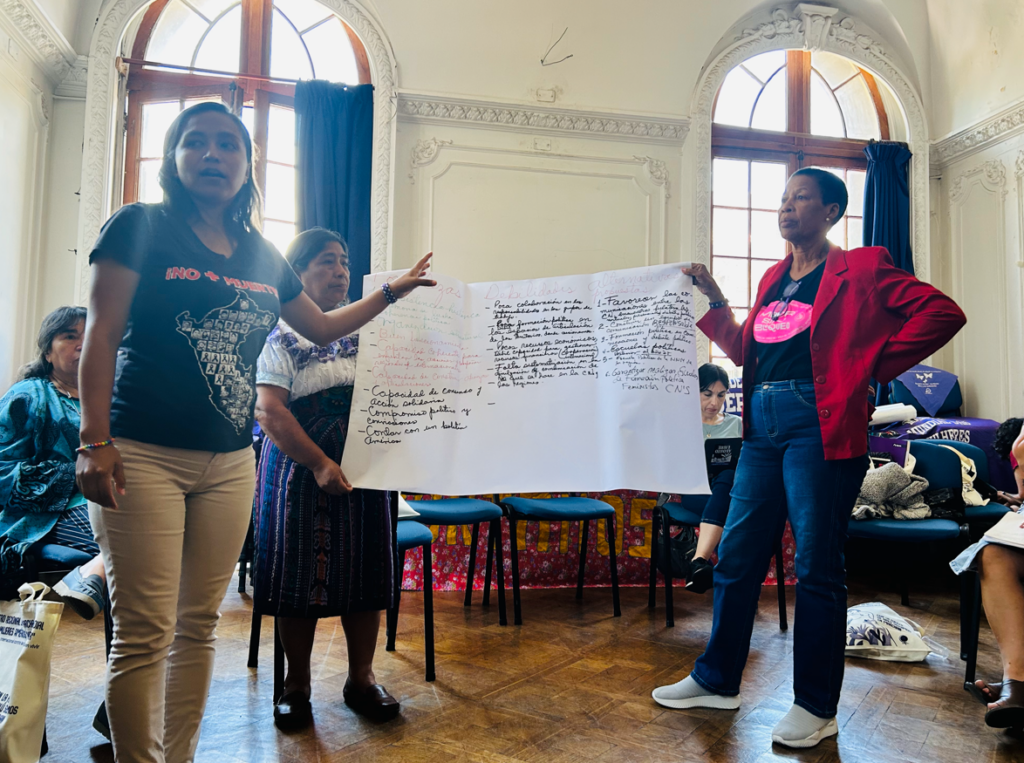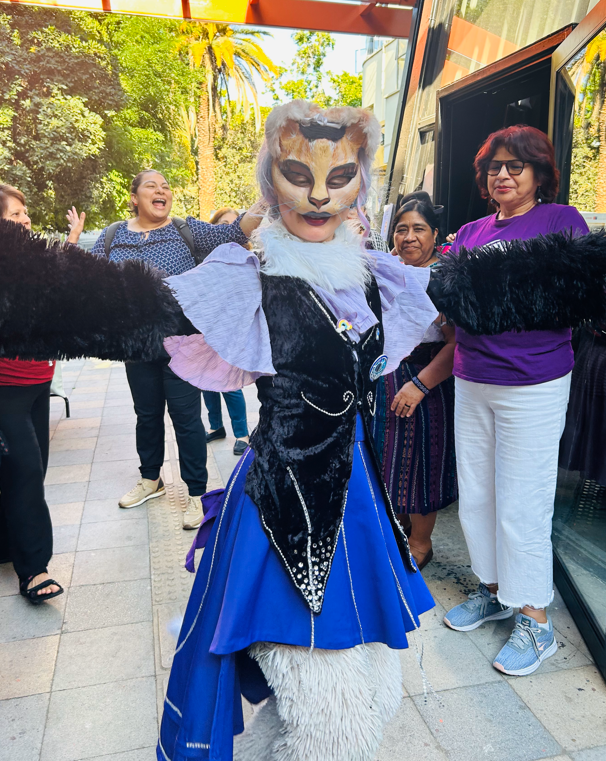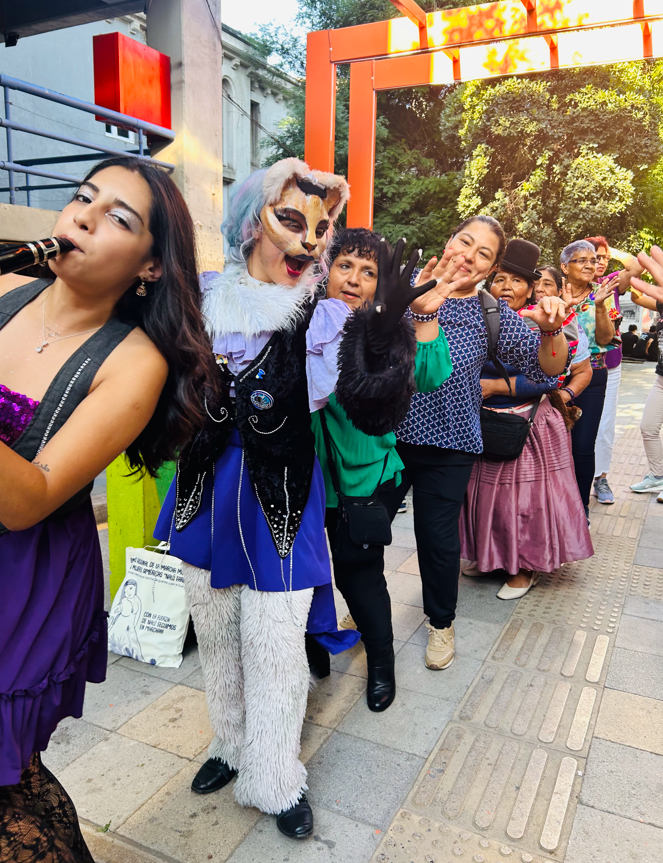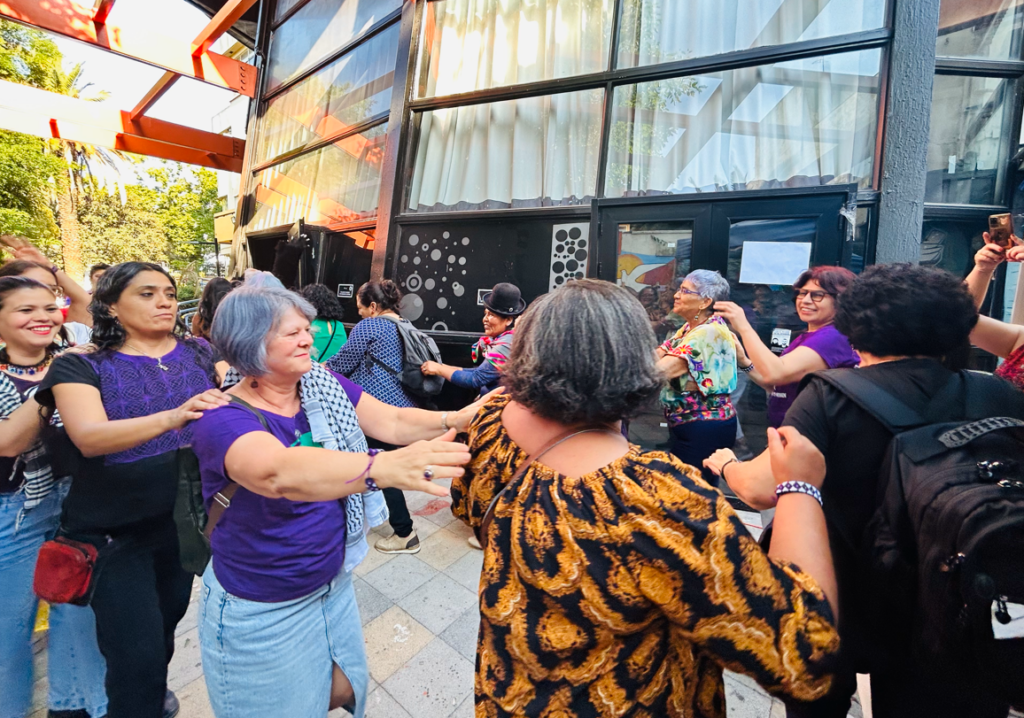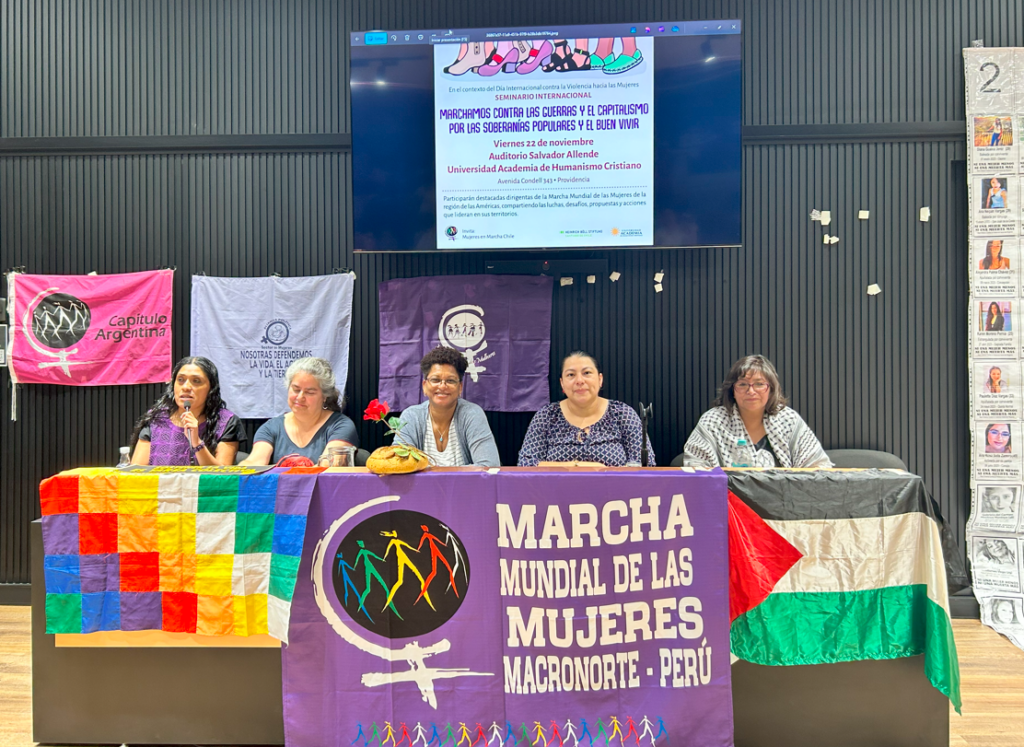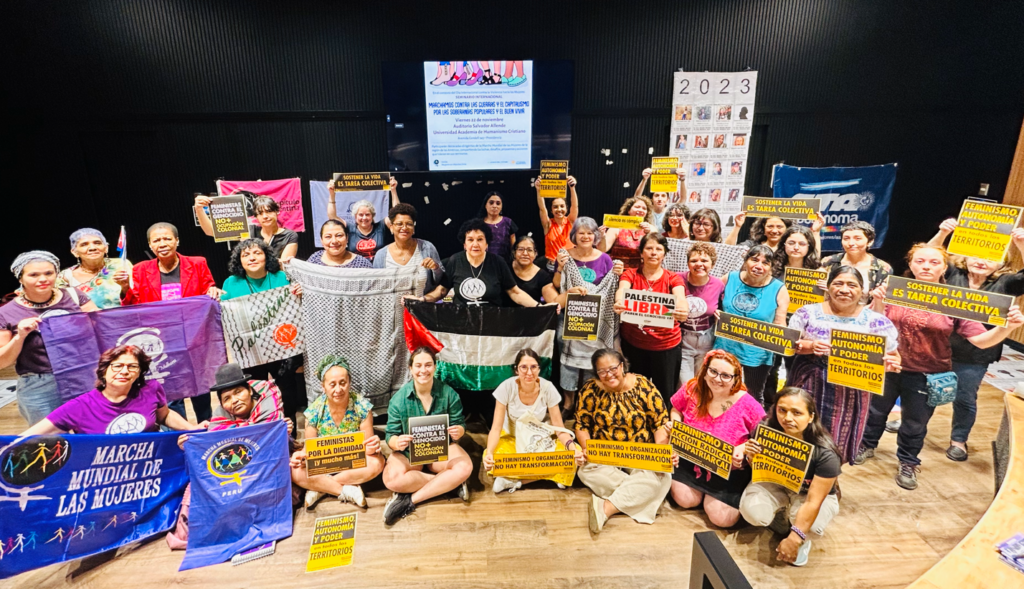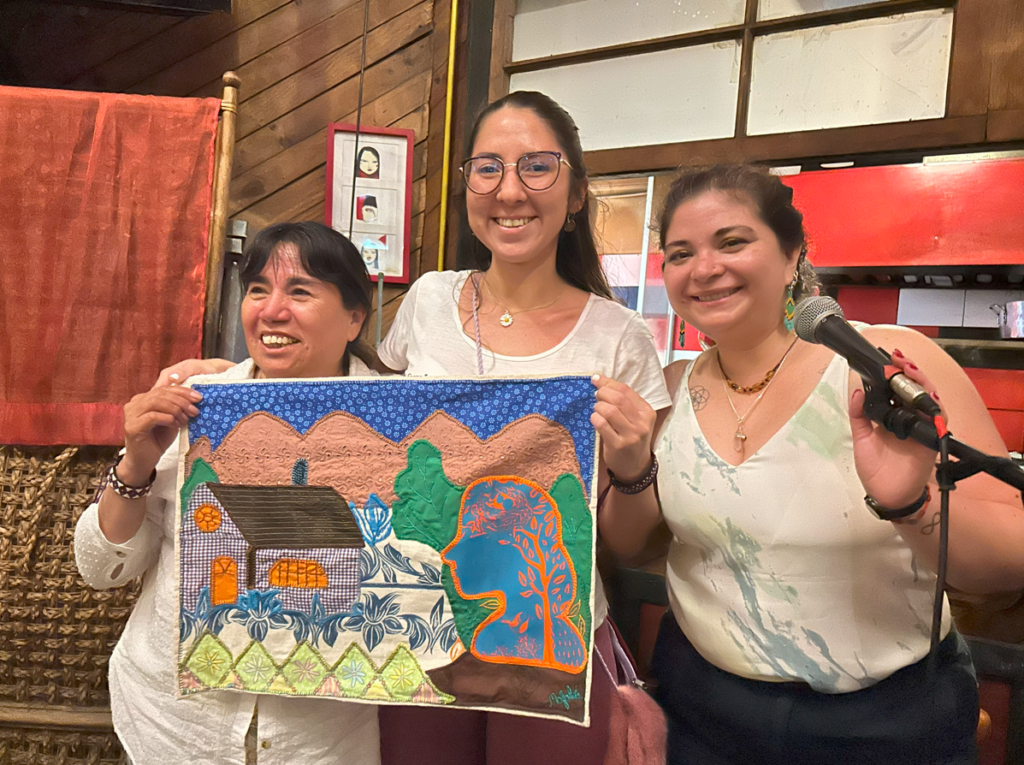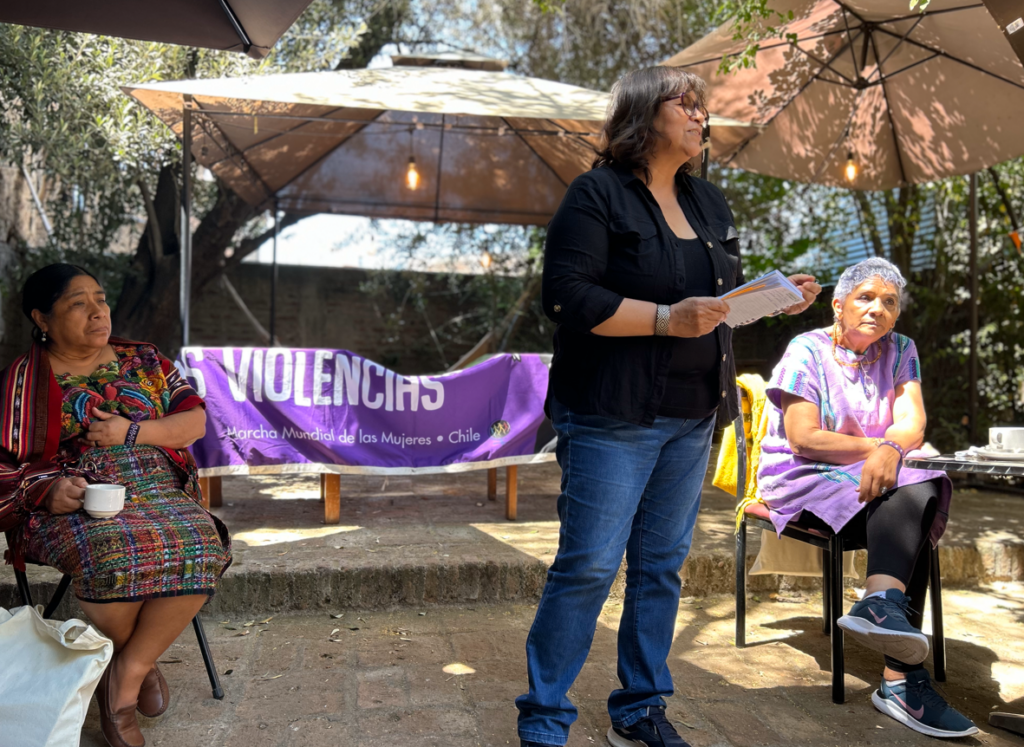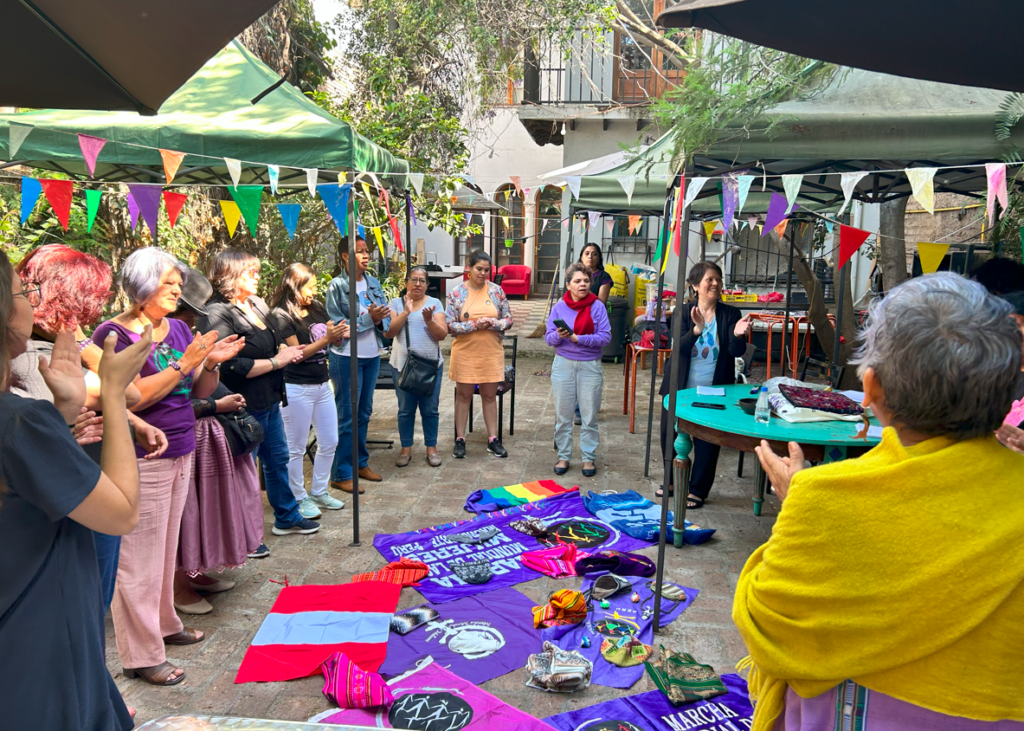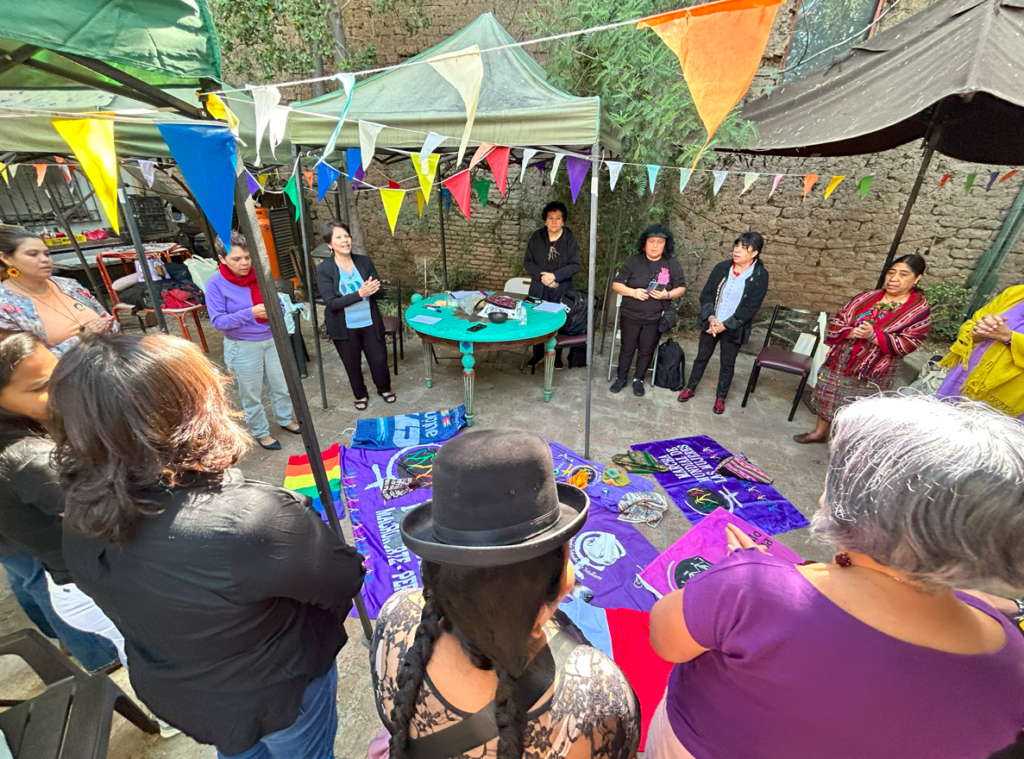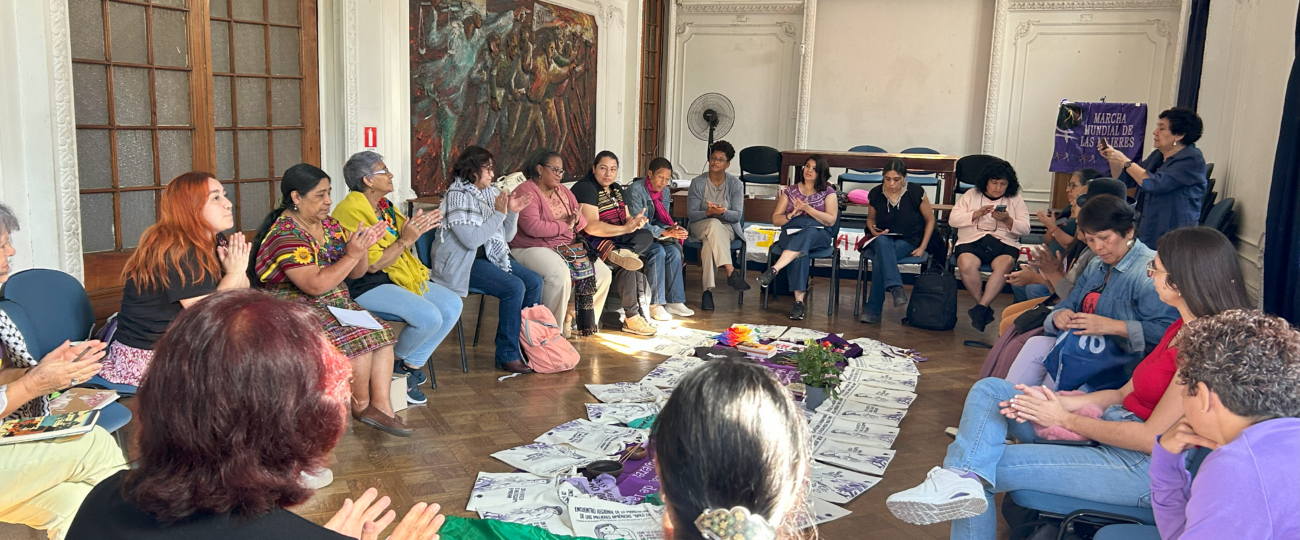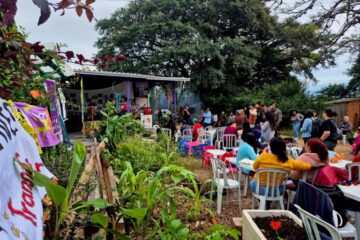From November 21 to 24, representatives from 16 national coordinations of the World March of Women (WMW) convened in Santiago, Chile, for the “Nalu Faria” Regional Meeting of the Americas.
The event aimed to bring comrades together in person, update regional analyses, and shape the WMW’s strategic plan for the Americas as the movement prepares for its 6th International Action, scheduled to take place from February to October 2025, with a series of planned activities throughout this period.
La Moneda Chica
Over four days, Casa del Maestro, a historically significant site in Chile, hosted the delegations of WMW Americas and the meeting’s activities. Located in central Santiago, the building is also known as La Moneda Chica since it served as Salvador Allende’s first presidential office in 1970.
Corina Muñoz, a representative of WMW Chile, emphasized the symbolic value of the venue. Built between the late 19th and early 20th centuries, the site “is a monument in our country, with commemorative plaques honoring teachers who disappeared or were executed during the civic-military dictatorship. It’s essential to inhabit and breathe life into this space, keeping memory alive.”
Regional Context
Following The Mística, led by the Chilean hosts, the event began with an analysis of the challenges faced by sub-regions across the continent—South America, Central America, the Caribbean, and North America. The meeting’s discussions were guided by the WMW’s four areas of work: Defending Commons, Feminist Economy, Autonomy over Bodies and Sexuality, and Peace and Demilitarization.
Activists highlighted how the rise of conservatism has intensified the oppression of patriarchal, capitalist, and racist systems across the region. Religious fundamentalism has fueled attacks on women, who are often the primary defenders of territories.
Additionally, transnational corporations, deeply rooted in extractivism in the Americas, remain a central target of women’s resistance, whether in rural or urban settings. Throughout the Americas, women lead efforts to protect life and biodiversity in their territories.
Under neoliberal systems that deepen state and corporate alliances, life becomes increasingly precarious, exacerbating poverty, hunger, debt, territorial conflicts, and migration crises—including heightened discrimination and xenophobia. Addressing these urgent issues requires integrated resistance strategies. In this struggle, WMW aims to craft a feminist political agenda to transform women’s realities.
Norma Cacho, Americas representative on the International Committee, emphasized that “the WMW has consistently confronted and responded to neoliberal policies that harm people and women”. She pointed out that one of the challenges identified during the Regional Meeting is “how to continue strengthening our popular feminist power in an increasingly adverse context.”
6th International Action
Considering that the social issues in the Global North and South are deeply interconnected, the World March of Women holds an International Action every five years. Beyond formulating the movement’s political framework, the goal is to advance a permanent feminist action agenda globally.
Under the motto “We march against wars and capitalism, for popular sovereignties and well-being”, the6th International Action of the WMW will present a calendar of struggles spread throughout 2025. The Action will kick off on February 18, Sahrawi Women’s Day, with an event focused on solidarity and anti-colonial resistance. Major feminist mobilizations will follow on March 8, International Women’s Day, igniting a global feminist calendar.
In the Americas, WMW representatives emphasized the need for more spaces dedicated to feminist action, dialogue, and training. To this end, the regional coordination leaves Chile with the task of adding a set of specific activities to the 6th International Action calendar.
From May to July, WMW Americas will convene virtual spaces for collective planning, culminating in the next Regional Meeting in Chiapas, Mexico, which will coincide with the Day of Afro-Latin American and Afro-Caribbean Women.
This meeting will solidify the feminist agenda for the continent and prepare for the closing event of the 6th International Action, scheduled for September 2025 in Nepal. To end the year, the WMW’s 24-hour feminist solidarity action will take place on October 17, International Day for the Eradication of Poverty.
Solidarity with Palestine
Alongside the Regional Meeting, the World March of Women in Chile organized an International Seminar to discuss the current stage of the international neoliberal system and share WMW’s insights from its various areas of action.
Held at the Universidad Academia de Humanismo Cristiano, the seminar featured a cultural exchange with La Inquieta, a group of female musicians that challenges the traditionally male-dominated chinchinera culture.

As part of the seminar’s program, the World March of Women dedicated a moment to reaffirm international solidarity with the Palestinian people, who have been suffering for over a year from a new phase of genocidal offensives on their territories, particularly in Gaza.
For Adriana Vieira from MMM Brazil, the regional meetings serve precisely to keep international solidarity ties active. “If we understand that capitalism is our common enemy, affecting all of us, having a space to think about struggle strategies from the Americas is essential, not only to understand ourselves as a region, but also to strengthen each other and build common alternatives.”
